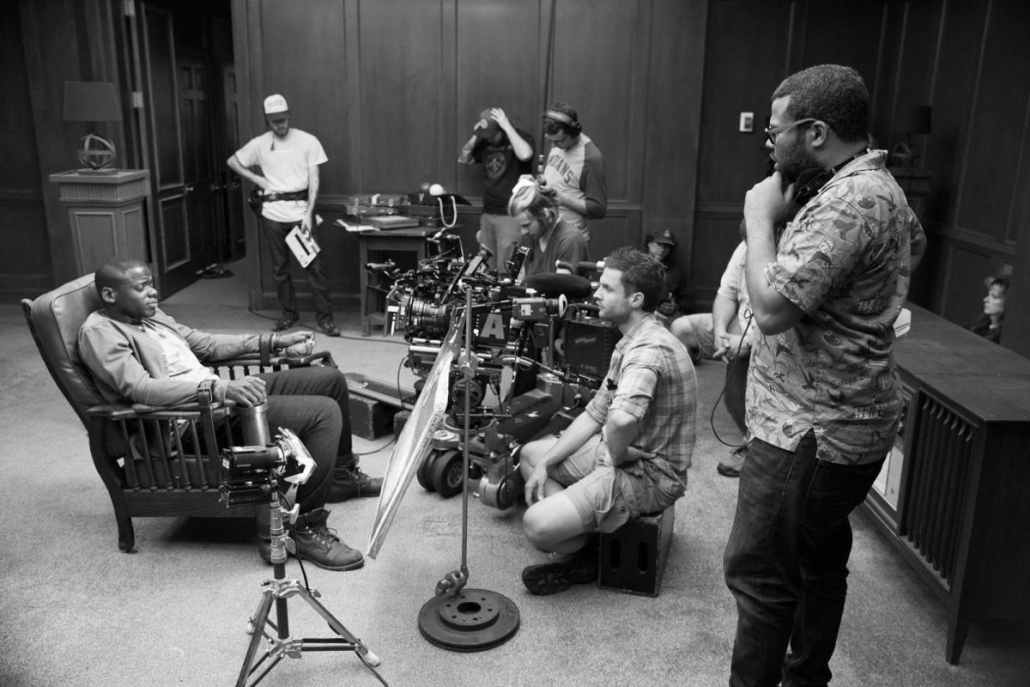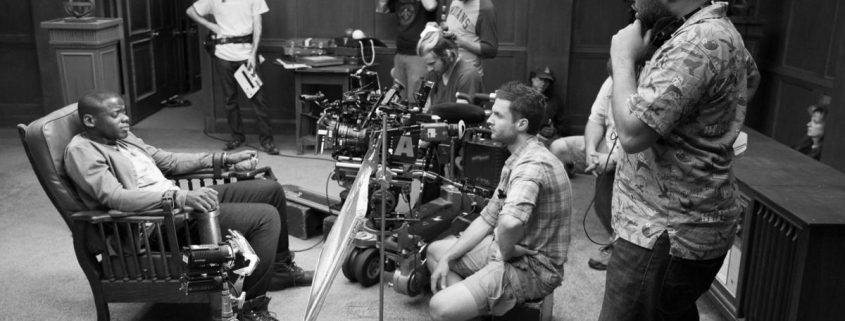Hustle and Fro: Hollywood, Black trauma isn’t your genre

Hollywood is capitalizing off of Black trauma, and I’m infuriated.
Actually, let me rephrase that: New horror films and television shows are trying their best to capture the social nuances of the Black community in their plots, but they’re missing their mark, and it’s borderline disrespectful.
There has been a new wave of films and TV that are best put into the category “Social Thriller”, as dubbed by director Jordan Peele. It explores the social norms and nuances of a community and flips it on its head, much like the film “Get Out” did for the Black community.
As I’ve sadly come to notice though, with the popularity of this genre, has also come its misuses. Directors and showrunners have taken the trauma that Black people have faced and are using it as social commentary but in ways that feel like rubbing salt on an open wound.
Maybe now’s a good time to say spoiler alert for the following: “Them” (2021), “Two Distant Strangers” (2020) and “Antebellum” (2020).
Let’s first look at “Them,” an anthological show that details the racist horrors a Black family endures when they’re the first to integrate into a once all-white Los Angeles neighborhood in the 1950s. The family is then met with unthinkable torment by their racist white neighbors.
What the show does, in reality, is capitalize off Black pain. It leaves nothing to the imagination as it depicts lynching, racial slurs and rape with immense detail. But why? Creator Little Marvin explains just that in an L.A. Times interview by saying how he wants audiences to truly feel the pain of Black Americans.
“I wanted a scene that would rip through the screen, grab the viewer by the jugular and force them to contend with a history of violence against Black bodies in this country,” Marvin said. “If I did that in a way that you’ve seen before — like an act of police brutality or a slave narrative — that in some way creates a distance or a salve for a viewer.”
With this said, it’s hard to imagine that this show was created for a Black audience. For a Black viewer who is forced to face racial trauma almost every day with microaggressions, police brutality and other things of the like, it doesn’t seem as though they would need a reminder on-screen that racism of this caliber exists.
Similarly, there’s the Oscar-winning short film “Two Distant Strangers,” where a Black man, Carter James, is trapped in a sort of time loop, forced to experience the same death every day: being killed by the police. Throughout the film, Carter finds himself in a deadly situation with the same police officer daily, whether it be a stop-and-frisk incident gone wrong or plain murder.
The film’s director, Travon Free, was inspired to make this film — after the protests sparked by the murder of George Floyd in 2020 — as a means to display the horrors that Black people go through via policing every day. While this film reinforces that, it also acts as a painful reminder of Black people’s own realities, much like the show “Them.”
I, as well as so many others, have spent many days hearing and witnessing how police brutality takes so many of those in the Black community. It’s exhausting, especially when it seems as though there is a new high-profile police-related death every month. Knowing that there is a film out there dedicated to hammering that imagery into viewers’ minds, makes me wonder again, who is this film’s audience?
While I’m at it, let’s bring one more film into the mix: “Antebellum.” The film depicts an enslaved Black woman named Eden who goes through all kinds of torture, which isn’t surprising for a slave narrative, until (here’s the kicker), we discover she was a successful Black woman who was kidnapped and put on a civil war reenactment theme park called, “Antebellum.”
While that sentence in itself probably made you as shocked as I am, I would like to again ask, why? Why does Hollywood and its directors feel the need to capitalize off of the abhorrences of Black history?
Maybe it’s because that’s what’s in. The film “Get Out” was the most profitable film of its year and secured Jordan Peele an Oscar, and who wouldn’t want the same? The difference is Peele was able to, so beautifully might I add, mix Black social issues into the thriller-scape without rehashing and visualizing immense Black turmoil. It opened conversations and didn’t feel like another iteration of trauma porn.
But on a brighter note, there are people working to actively combat this narrative of Black trauma in entertainment, like Marsai Martin, a 16-year-old Black actress and Hollywood’s youngest executive producer.
In an interview with The Hollywood Reporter, she revealed her “No Black Pain” rule to challenge the usage of Black pain for audience’s entertainment.
“I have a couple of rules … when you come into my office, don’t give me this — I don’t do no Black pain,” Martin said. “If it’s Black pain, I don’t go for it because there’s so many films and projects about that, so that’s not who I am.”
She’s right too. The Black experience isn’t just slavery, Jim Crow and police brutality. We aren’t our pain. The Black community is multifaceted and deserves to be shown as such in the film industry, even if it is horror. If majority white films such as “Scream” and “Hereditary” can exist without racialized violence, Black horror films and shows can too.
Hollywood has always been intended to be a kind of escapism from the struggles of everyday life, but when films and television like the previously stated put you in the driver seat of your own realities, it’s hard to find that real separation. I say it’s time to leave these subjects alone unless it’s actively adding to social dialogue and contributing to change. So Hollywood, this won’t be my last request, but stop making my community’s trauma your genre.
Marlize Duncan is a sophomore writing about Black social issues and their intersection in the entertainment industry. Her column, “Hustle and Fro” ran every other Thursday.

